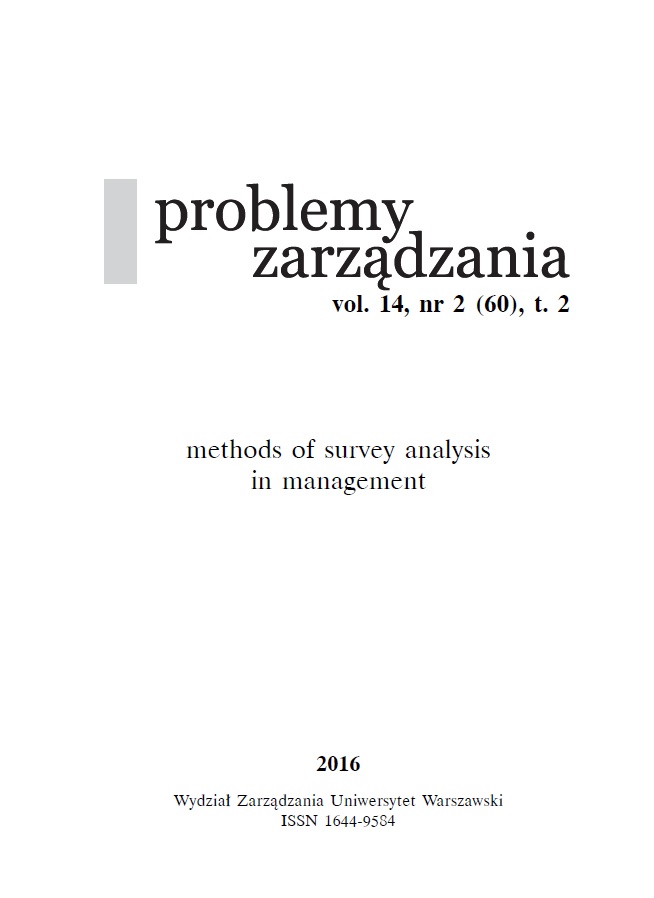Extreme Response Style in Correlational Research
Extreme Response Style in Correlational Research
Author(s): Katarzyna Kinga Kowalczyk, Agnieszka Mulak, Grzegorz KrólSubject(s): Social Sciences, Economy
Published by: Wydawnictwo Naukowe Wydziału Zarządzania Uniwersytetu Warszawskiego
Keywords: response style; extreme response style; survey research
Summary/Abstract: Extreme Response Style, defined as the tendency to consistently use (or avoid) the extreme ends of response scales in questionnaires with a multiple response category format (Clark, 2000), is one of the most studied response styles. The reason for this is its potential to distort survey results, especially in cross-cultural research (Cheung & Rensvold, 2000). Furthermore, the relationships between ERS and most frequently analyzed socio-demographic variables (such as gender, age, education) are inconclusive. We replicated a number of well-established effects, using data from the World Value Survey, and expanded these analyses by including an ERS index, to determine its possible effect on the original results. We found no significant effects of ERS in any of the replicated studies, as long as the ERS index is uncorrelated with the dependent variable. We followed with a theoretical model and a recount of simulation results in an attempt to define boundaries for the phenomenon of ERS significantly affecting research conclusions. We argue that even for interval-level correlation measures, e.g. as used in the ordinary least squares regression analysis, the effect on real data is negligible.
Journal: Problemy Zarządzania
- Issue Year: 14/2016
- Issue No: 2 (60)
- Page Range: 61-82
- Page Count: 22
- Language: English

